Hou Hsiao-Hsien is a Taiwanese film director who is widely regarded as one of the greatest living filmmakers. Known for his elegant, subtle, and contemplative style, Hou has been at the forefront of Taiwan’s New Wave cinema since the 1980s. Here are some of his best films:
“A City of Sadness” (1989): Set in Taiwan during the aftermath of the 228 Incident, “A City of Sadness” is a powerful exploration of history, memory, and national identity. The film follows the lives of four brothers as they struggle to come to terms with the traumatic events of the past.
“The Puppetmaster” (1993): “The Puppetmaster” is a biographical drama that tells the story of Li Tien-lu, a Taiwanese puppeteer who lived through some of the most tumultuous periods of Taiwan’s history.
The film blends documentary and fictional elements to create a rich and complex portrait of a master artist.
“Three Times” (2005): “Three Times” is a triptych of stories that explore love and relationships in different time periods. Each segment of the film is shot in a different style and features a different set of actors, highlighting Hou’s versatility and ability to experiment with form.
“Millennium Mambo” (2001): “Millennium Mambo” is a stylish and evocative film that tells the story of a young woman named Vicky as she navigates her way through the nightlife of Taipei.
The film is notable for its stunning cinematography and its use of music to create a dreamlike and immersive atmosphere.
“The Assassin” (2015): “The Assassin” is a martial arts film set in 9th-century China that tells the story of a young woman who is trained as an assassin.
The film is notable for its breathtaking visuals, its subtle and nuanced storytelling, and its exploration of themes of loyalty, duty, and honor.
Best Hou Hsiao-Hsien Films
Hou Hsiao-Hsien’s films are known for their visual beauty, their contemplative style, and their exploration of complex themes and ideas.
His works are considered to be some of the finest examples of Asian cinema, and they continue to inspire and influence filmmakers around the world.
1. Flowers of Shanghai (1998)
“Flowers of Shanghai” is a 1998 film by Hou Hsiao-Hsien that is widely regarded as one of his greatest works.
Set in late 19th-century Shanghai, the film explores the lives and relationships of a group of courtesans, or “flowers,” who work in a high-end brothel. The film is known for its visually stunning cinematography, its nuanced performances, and its subtle and understated storytelling.
One of the key themes of the film is the power dynamics between men and women, particularly within the context of the courtesan culture.
The film portrays the courtesans as sophisticated and intelligent women who are skilled in the arts of conversation, music, and dance.
However, it also shows how they are trapped by the strict codes and rituals of their profession, and how they are dependent on the men who frequent their establishment for their livelihoods.
The film also explores the complex relationships that exist between the courtesans and their patrons, as well as the relationships that exist between the courtesans themselves.
Through its rich and detailed portrayal of this closed world, the film offers a window into a bygone era and a complex and fascinating culture.
Overall, “Flowers of Shanghai” is a masterful and beautifully crafted film that showcases Hou Hsiao-Hsien’s distinctive style and his ability to create immersive and deeply affecting cinematic experiences.
- Flowers of Shanghai (The Criterion Collection) [Blu ray]
- Product type: PHYSICAL MOVIE
- Brand: The Criterion Collection
- Tony Chiu-Wai Leung, Michiko Hada, Michelle Reis (Actors)
- Hsiao-hsien Hou (Director)
If you like Hou Hsiao Hsien’s work, on our sister site AuteurGraph we have a profile page, a visual film timeline, and a ratings page that gives a tonne of info and data about their career in a visualized form.
2. Goodbye South, Goodbye (1996)
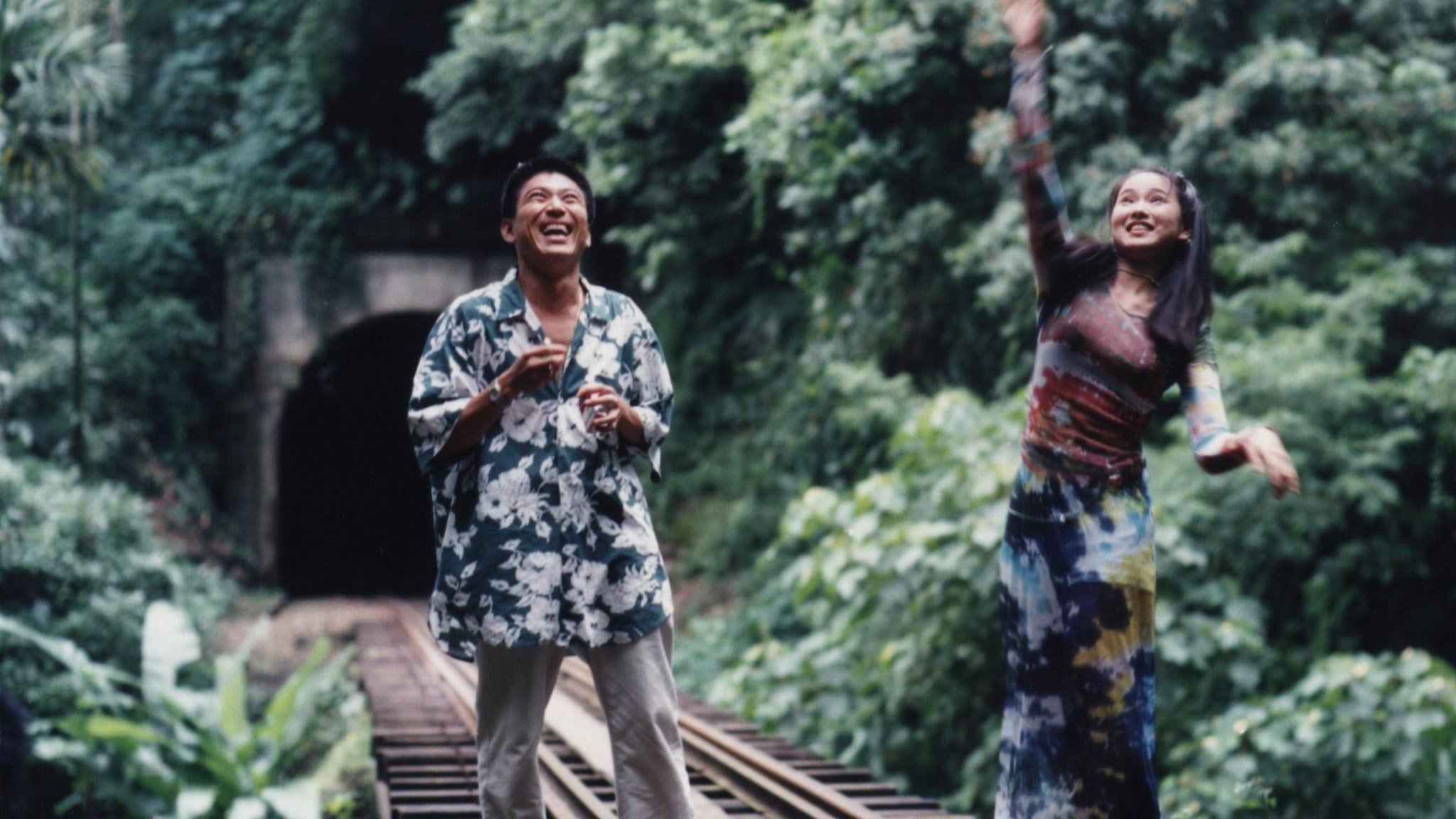

Goodbye South, Goodbye
Fast times, easy money, big trouble.
1996 • 1h 56min • ★ 6.825/10 • Taiwan
Directed by: Hou Hsiao-hsien
Cast: Jack Kao, Lim Giong, Vicky Wei, Annie Shizuka Inoh, Hsu Kuei-ying
In this portrait of small-time hoods rendered in rhythm-of-life anecdotal detail, Gao is the leader of a circle of layabouts including his sidekick, Flathead, and their girlfriends, Pretzel and Ling. He is also the originator of petty crime schemes, which promise to get the gang nowhere fast.
“Goodbye South, Goodbye” is a Taiwanese film directed by Hou Hsiao-hsien and released in 1996. The movie follows a group of small-time gangsters who are struggling to make a living in the crime-ridden southern city of Kaohsiung.
The film explores themes of violence, masculinity, and existential despair, and offers a bleak and uncompromising portrayal of life on the margins of society.
The film is renowned for its visual style, which is marked by long takes, static shots, and a muted color palette.
Hou Hsiao-hsien uses these techniques to create a sense of realism and immersion, allowing viewers to experience the rhythms and textures of the characters’ lives in a visceral and powerful way.
“Goodbye South, Goodbye” received critical acclaim upon its release, with many critics praising its uncompromising vision and visual style. The film has since become regarded as a classic of Taiwanese cinema, and an important work in the canon of world cinema.
Overall, “Goodbye South, Goodbye” is a powerful and affecting film that offers a searing portrait of life on the margins of society. It is a must-watch for anyone interested in Taiwanese cinema, and for fans of cinema that is bold, uncompromising, and visually striking.
- Hsiang Hsi, Kuei-Ying Hsu, Annie Shizuka Inoh (Actors)
- Hsiao-hsien Hou (Director) - Jack Kao (Writer)
- English (Subtitle)
- Audience Rating: Unrated (Not Rated)
3. A City of Sadness (1989)
“A City of Sadness” is a 1989 Taiwanese drama film directed by Hou Hsiao-hsien. The film is set in the aftermath of the 228 Incident, a violent uprising that took place in Taiwan in 1947.
The film follows the lives of the Lin family, a wealthy clan who must navigate the complex political and social landscape of Taiwan during this turbulent time.
The film is notable for its powerful portrayal of the impact of political turmoil on everyday people, as well as for its nuanced and complex characterizations.
The film also features a stunning and haunting score by composer Ryuichi Sakamoto, which adds to the film’s emotional impact.
“A City of Sadness” was highly acclaimed upon its release and is now considered a classic of world cinema. The film is notable for its poetic and highly artistic style, as well as for its profound and moving exploration of the human experience in times of conflict and upheaval.
The film remains a powerful and affecting work of cinema, and a testament to the artistry and vision of director Hou Hsiao-hsien.
4. The Puppetmaster (1993)
“The Puppetmaster” is a 1993 biographical film directed by Hou Hsiao-Hsien that tells the story of Li Tien-lu, a Taiwanese puppeteer who lived through some of the most tumultuous periods of Taiwan’s history.
The film blends documentary and fictional elements to create a rich and complex portrait of a master artist.
The film is divided into three parts, each of which corresponds to a different period of Li Tien-lu’s life.
The first part explores his childhood and his early experiences with puppetry, while the second part focuses on his time as a young adult and his experiences during the Japanese occupation of Taiwan.
The third part of the film deals with his life after World War II and his relationship with the Kuomintang government.
Overall, “The Puppetmaster” is a masterful and deeply affecting film that showcases Hou Hsiao-Hsien’s talents as a director and storyteller. The film offers a powerful and moving tribute to Li Tien-lu and his art, and it is widely regarded as one of the greatest works of Taiwanese cinema.
- Tianlu Li, Giong Lim, Ming Hwa Bai (Actors)
- Hsiao-hsien Hou (Director) - Nien-Jen Wu (Writer)
- English (Subtitle)
- Audience Rating: Unrated (Not Rated)
5. The Assassin (2015)
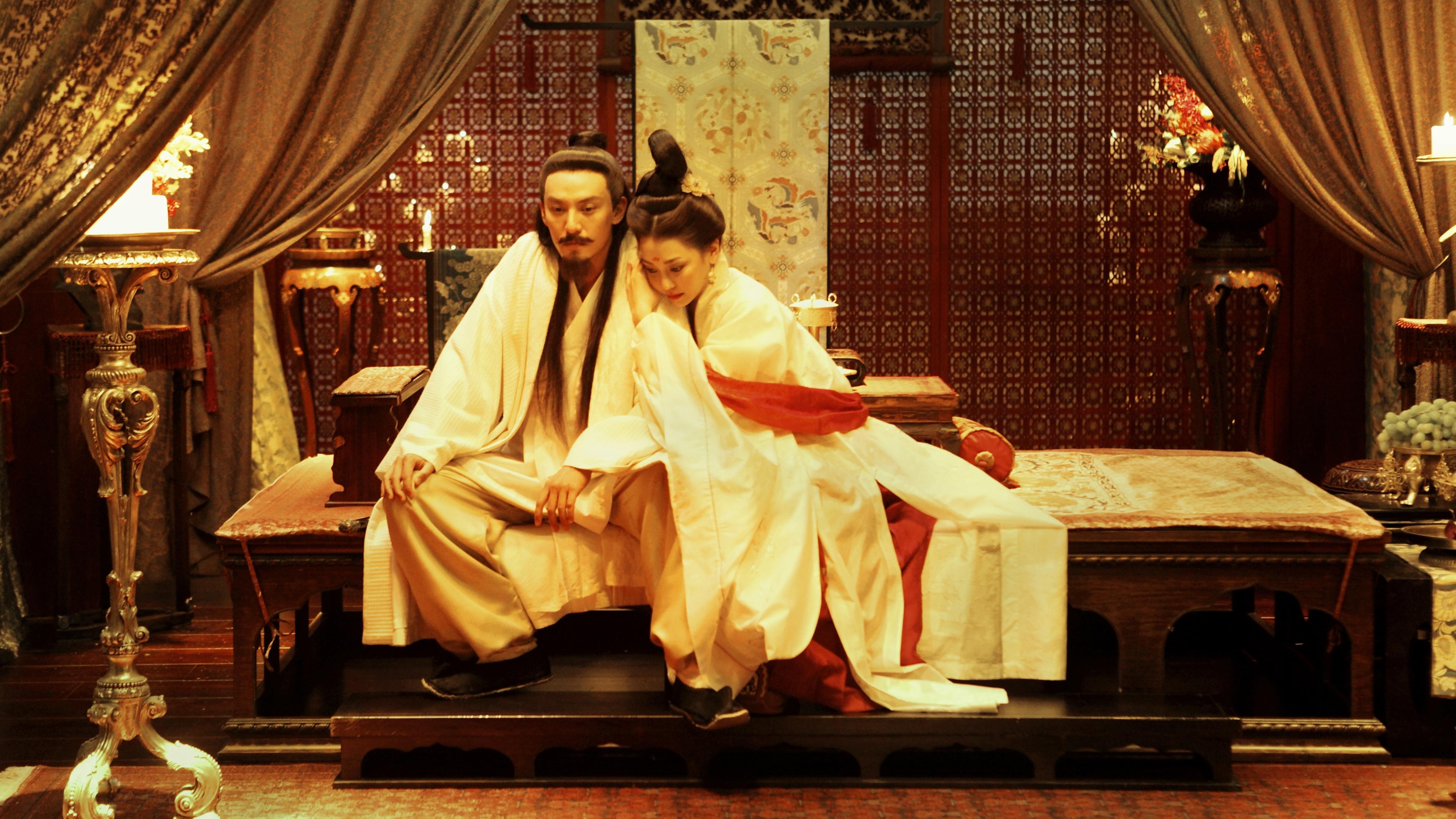

The Assassin
2015 • 1h 45min • ★ 6.396/10 • China
Directed by: Hou Hsiao-hsien
Cast: Shu Qi, Chang Chen, Nikki Hsieh, Sheu Fang-Yi, Ethan Juan
9th century China. Ten year old general’s daughter Nie Yinniang is abducted by a nun who initiates her into the martial arts, transforming her into an exceptional assassin charged with eliminating cruel and corrupt local governors. One day, having failed in a task, she is sent back by her mistress to the land of her birth, with orders to kill the man to whom she was promised – a cousin who now leads the largest military region in North China. After 13 years of exile, the young woman must confront her parents, her memories and her long-repressed feelings.
“The Assassin” is a Taiwanese wuxia film directed by Hou Hsiao-hsien and released in 2015. The movie is set in 9th century China and follows a young woman, played by Shu Qi, who is trained as an assassin by a nun and sent on a mission to kill her own cousin, who is the governor of Weibo.
The film is known for its stunning cinematography, intricate plot, and philosophical themes.
One of the most notable aspects of “The Assassin” is its visual style, which is marked by long takes, static shots, and a muted color palette. Hou Hsiao-hsien uses these techniques to create a sense of stillness and tension, which perfectly captures the mood of the film’s setting.
“The Assassin” received critical acclaim upon its release, and went on to win the Best Director award at the 2015 Cannes Film Festival.
The film has since become regarded as a masterpiece of world cinema, and a must-watch for anyone interested in wuxia films, or for those looking for a visually stunning and intellectually stimulating cinematic experience.
Overall, “The Assassin” is a stunning work of art that showcases the mastery of Hou Hsiao-hsien as a director. Its rich visual style, complex plot, and philosophical themes make it a must-watch for any serious film lover.
No products found.
6. Flight of the Red Balloon (2007)
“Flight of the Red Balloon” is a 2007 French-Taiwanese film directed by Hou Hsiao-hsien. The film is loosely based on the classic French short film “The Red Balloon” by Albert Lamorisse, and tells the story of a young boy named Simon who lives in Paris with his mother and their live-in nanny.
The film is notable for its beautiful cinematography and its focus on the small details of everyday life. The red balloon from the original film serves as a metaphor for the connection between people, and the film explores themes of family, memory, and the passage of time.
“Flight of the Red Balloon” was highly acclaimed upon its release and is now considered a modern classic. The film is notable for its sensitive and nuanced portrayal of childhood, as well as for its profound and moving exploration of the human experience.
The film remains a testament to the artistry and vision of director Hou Hsiao-hsien, and a must-see for anyone interested in contemporary cinema.
7. Millennium Mambo (2001)
“Millennium Mambo” is a 2001 film by Hou Hsiao-Hsien that tells the story of Vicky, a young woman living in Taipei who is caught in a tumultuous and emotionally fraught relationship with her boyfriend Hao-hao.
The film is notable for its use of non-linear storytelling and its visually stunning cinematography.
The film is set in the year 2001, which is seen as a turning point in Taiwanese society and culture.
The film explores the ways in which Vicky and Hao-hao are caught up in the changes that are taking place around them, and how they struggle to find meaning and connection in a world that seems to be rapidly unraveling.
Visually, the film is stunning, with Hou Hsiao-Hsien’s signature use of long, static takes and minimalistic camera movements creating a sense of quiet contemplation and introspection.
The film’s evocative soundtrack, which features both traditional and contemporary music, adds to the film’s dreamlike and haunting quality.
Overall, “Millennium Mambo” is a powerful and deeply affecting film that showcases Hou Hsiao-Hsien’s talents as a director and storyteller. The film is widely regarded as one of his masterpieces and is considered to be one of the most important works of Taiwanese cinema.
- Amazon Prime Video (Video on Demand)
- Shu Qi, Jack Kao, Tuan Chun-hao (Actors)
- Hou Hsiao-hsien (Director) - Chu Tien-wen (Writer) - Chu Tien-wen (Producer)
- (Playback Language)
- Audience Rating: R (Restricted)
8. Café Lumière (2003)
“Café Lumière” is a 2003 Japanese-Taiwanese film directed by acclaimed director Hou Hsiao-hsien.
The film is a tribute to the legendary Japanese director Yasujiro Ozu, and follows a young woman named Yoko, who is a freelance writer and translator living in Tokyo.
Yoko discovers that she is pregnant, and must navigate her changing life and relationships with her parents, her boyfriend, and her friend Hajime.
The film is notable for its slow pacing, its focus on everyday life, and its naturalistic acting style. These elements are typical of the works of Yasujiro Ozu, and Hou Hsiao-hsien uses them to pay homage to his predecessor, while also adding his own unique perspective and style.
“Café Lumière” also offers a deep exploration of Japanese culture and society, touching on themes such as family relationships, generational conflict, and the changing roles of women in contemporary Japan.
The film offers a window into the everyday lives of its characters, and invites the viewer to contemplate the meaning of life, love, and human connection.
Overall, “Café Lumière” is a beautiful and contemplative film that offers a sensitive and nuanced portrayal of life in contemporary Japan.
Its exploration of family relationships, cultural traditions, and the complexities of human connection make it a must-watch for anyone interested in Japanese cinema or in films that offer a deep exploration of the human condition.
- Factory sealed DVD
- Yo Hitoto, Tadanobu Asano, Masato Hagiwara (Actors)
- Hsiao-hsien Hou (Director) - Hsiao-hsien Hou (Writer)
- English (Subtitle)
- English (Publication Language)
9. Good Men, Good Women (1995)
“Good Men, Good Women” is a 1995 Taiwanese film directed by Hou Hsiao-hsien. The film is the third installment in a trilogy of films exploring the history and culture of Taiwan, following “A City of Sadness” and “The Puppetmaster.”
The film tells the story of a young actress named Liang Ching, who is preparing to play a role in a film about a couple who were executed as spies during the White Terror period in Taiwan.
As she researches the role, she begins to uncover secrets from her own past and becomes embroiled in a web of political intrigue and personal conflict.
“Good Men, Good Women” is notable for its complex and layered narrative, which weaves together the past and present of Taiwan in a highly inventive and experimental way. The film also features stunning cinematography and a haunting and evocative score by composer Lim Giong.
“Good Men, Good Women” was highly acclaimed upon its release and remains a powerful and important work of Taiwanese cinema.
The film is notable for its exploration of the complex and often painful history of Taiwan, as well as for its highly artistic and experimental style. It is a must-see for anyone interested in contemporary cinema and the history and culture of Taiwan.
- Annie Shizuka Inoh, Giong Lim, Jack Kao (Actors)
- Hsiao-hsien Hou (Director) - Bi-Yu Chiang (Writer)
- English (Subtitle)
- Audience Rating: Unrated (Not Rated)
10. A Time to Live, a Time to Die (1985)
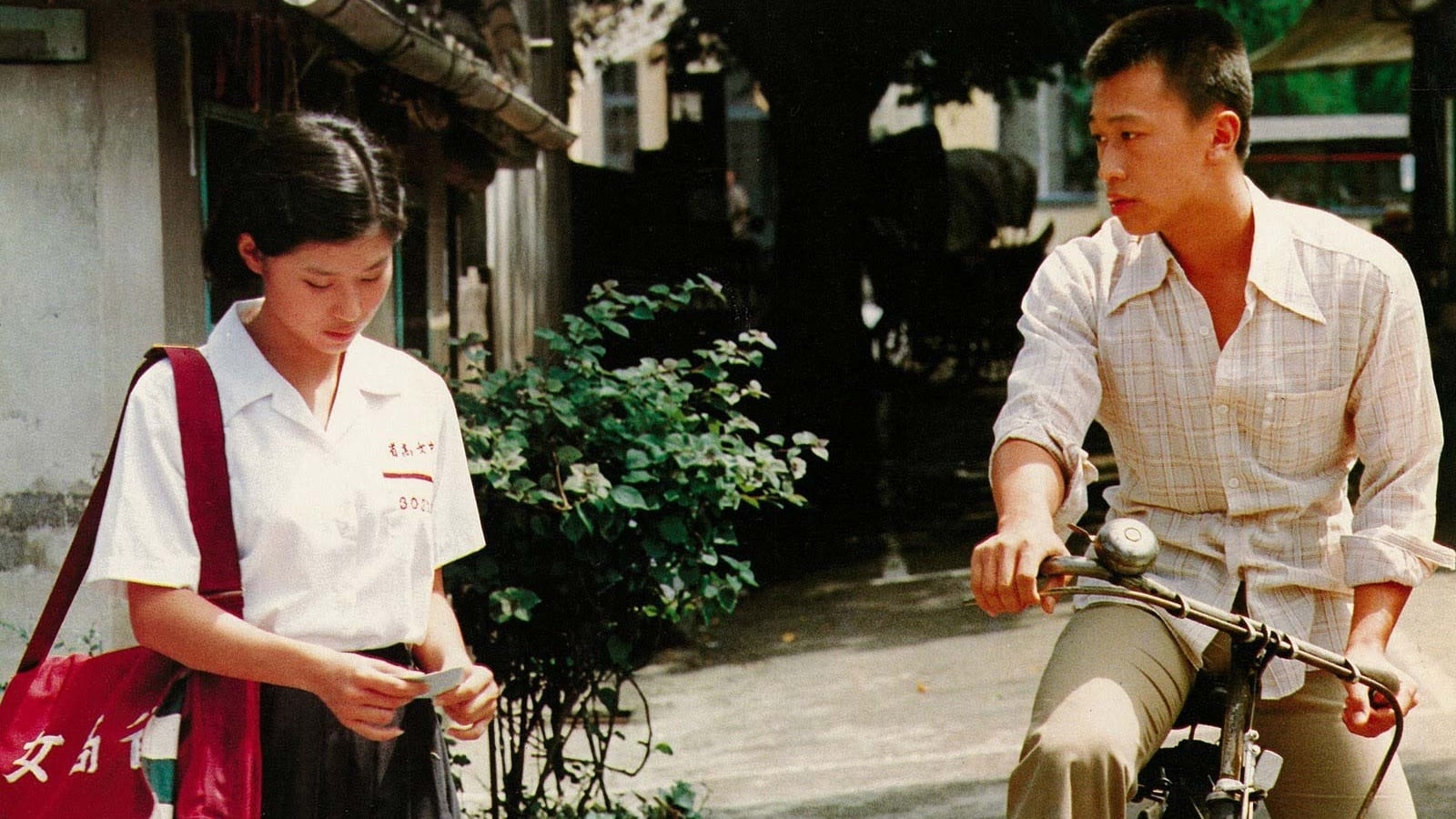
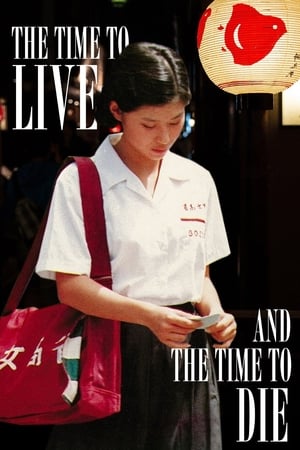
The Time to Live and the Time to Die
1985 • 2h 16min • ★ 7.4/10 • Taiwan
Directed by: Hou Hsiao-hsien
Cast: Yu An-Shun, Tien Feng, Mei Fang, Tang Ru-Yun, Hsin Shu-Fen
An autobiographical film based on Taiwanese director Hou Hsiao-hsien's memories of his youth growing up in Taiwan after emigrating from mainland China.
“A Time to Live, a Time to Die” is a 1985 film by Hou Hsiao-Hsien that tells the story of a Taiwanese family over the course of several years.
The film is loosely based on Hou’s own childhood experiences, and it is widely regarded as one of his most personal and poignant works.
The film is set in the 1940s and 1950s and follows the lives of a family who move from the countryside to the city in search of a better life.
The film explores the challenges that the family faces as they struggle to adapt to their new environment and the tensions that arise between the younger and older generations.
Visually, the film is stunning, with Hou Hsiao-Hsien’s signature use of long, static takes and minimalistic camera movements creating a sense of quiet contemplation and introspection.
The film’s evocative soundtrack, which features both traditional and contemporary music, adds to the film’s dreamlike and haunting quality.
Overall, “A Time to Live, a Time to Die” is a deeply affecting and moving film that showcases Hou Hsiao-Hsien’s talents as a director and storyteller. The film is widely regarded as one of his masterpieces and is considered to be one of the most important works of Taiwanese cinema.
No products found.
11. Dust in the Wind (1986)
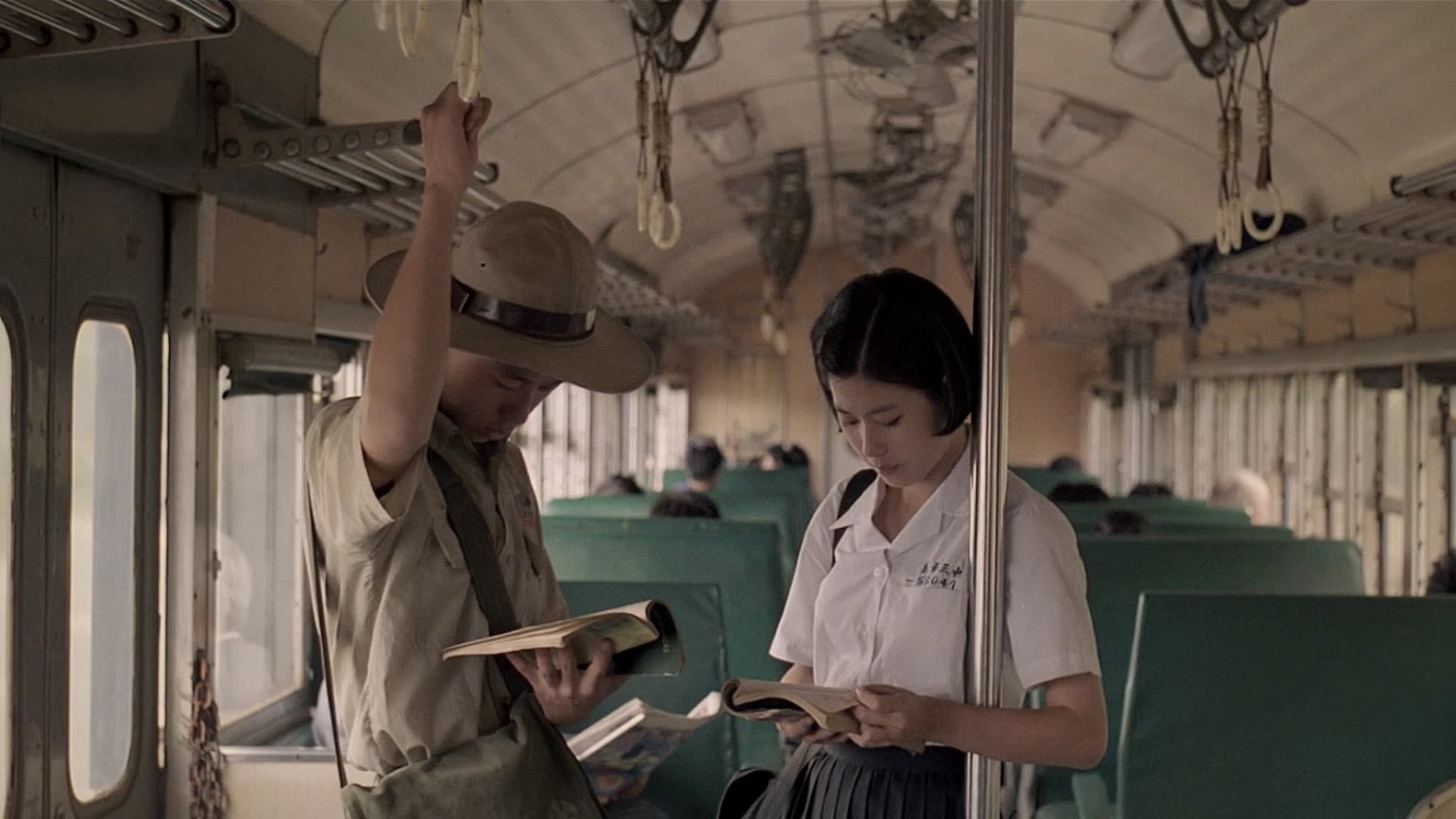
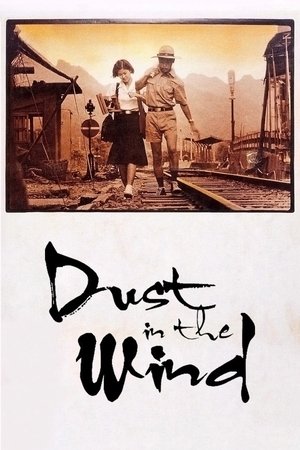
Dust in the Wind
1986 • 1h 49min • ★ 7.595/10 • Taiwan
Directed by: Hou Hsiao-hsien
Cast: Chien-wen Wang, Hsin Shu-Fen, Li Tian-Lu, Ju Lin, Mei Fang
A-yuan and A-yun are both from the small mining town of Jio-fen. They move to Taipei, where A-yuan is an apprentice by day and goes to night school, and A-yun works as a helper at a tailors. Everyone thinks they are meant for each other, and so do they. They fail to see time and fate are beyond their control.
“Dust in the Wind” is a 1986 Taiwanese film directed by Hou Hsiao-hsien. The film tells the story of a young couple, Wan and Huen, who live in a rural village in Taiwan in the 1960s.
The couple move to the city to find work and support their families, but the harsh realities of urban life soon take a toll on their relationship.
The film’s themes of nostalgia and the passing of time are also reflected in the film’s title, “Dust in the Wind,” which references a famous poem by the Chinese philosopher Tao Yuanming.
The poem tells of a man who withdraws from the world and returns to a simpler life in the countryside, realizing that everything in life is impermanent and fleeting, like dust blown in the wind.
Overall, “Dust in the Wind” is a beautiful and poignant film that offers a sensitive and nuanced portrait of life in Taiwan during the 1960s.
Its exploration of themes such as love, loss, and the passage of time make it a must-watch for anyone interested in films that offer a deep exploration of the human condition.
No products found.
12. A Summer at Grandpa’s (1984)
“A Summer at Grandpa’s” is a 1984 Chinese film directed by Hou Hsiao-hsien.
The film tells the story of two young siblings, a brother and sister named Tung-Tung and Ting-Ting, who are sent to live with their grandparents in the countryside while their mother seeks a divorce from their father.
The film is a sensitive and realistic portrayal of childhood, capturing the wonder, confusion, and occasional heartbreak of growing up. The children’s experiences are contrasted with those of their grandparents, who represent an older generation and a more traditional way of life.
Through their interactions, the film explores themes of family, tradition, and the passing of time.
Hou Hsiao-hsien uses a slow, deliberate pace and long takes to capture the rhythms of rural life, inviting the viewer to reflect on the characters’ experiences and emotions.
https://www.youtube.com/watch?v=NEFGO96mJO4
The film also features beautiful cinematography and a haunting musical score, adding to its atmospheric and contemplative feel.
Overall, “A Summer at Grandpa’s” is a beautiful and poignant film that offers a sensitive and nuanced portrait of childhood and family life.
Its exploration of themes such as tradition, generational conflict, and the passage of time make it a must-watch for anyone interested in films that offer a deep exploration of the human condition.
- Hou Hsiao Hsien (Director)
- Korean, English, Chinese (Subtitles)
13. The Boys from Fengkuei (1983)
“The Boys from Fengkuei” is a 1983 Taiwanese film directed by Hou Hsiao-hsien. The film tells the story of a group of young men from a small fishing village in Taiwan who move to the city in search of work and excitement.
Once there, they struggle to adjust to the fast pace and unfamiliar culture of the urban environment.
The film is notable for its sensitive and nuanced portrayal of young men trying to find their place in the world. It explores themes of identity, belonging, and cultural dislocation, as the boys try to reconcile their rural background with the demands of urban life.
“The Boys from Fengkuei” was highly acclaimed upon its release and is now considered a classic of Taiwanese cinema.
The film is notable for its poetic and highly artistic style, as well as for its profound and moving exploration of the human experience. It remains a powerful and affecting work of cinema, and a testament to the artistry and vision of director Hou Hsiao-hsien.
14. Three Times (2005)
“Three Times” is a 2005 film by Hou Hsiao-Hsien that explores the themes of love, memory, and the passage of time. The film is divided into three parts, each set in a different time period, and explores the complexities and nuances of love and relationships across different eras.
The first part of the film is set in 1966 and tells the story of a young pool hall girl, Jing, who falls in love with a soldier named Zhen.
The second part of the film is set in 1911 and follows the romance between a courtesan named May and a poet named Chen. The third part of the film is set in modern-day Taipei and explores the relationship between a female pop singer named Jing and a photographer named Zhen.
Visually, the film is stunning, with Hou Hsiao-Hsien’s signature use of long, static takes and minimalistic camera movements creating a sense of quiet contemplation and introspection.
The film’s evocative soundtrack, which features both traditional and contemporary music, adds to the film’s dreamlike and haunting quality.
Overall, “Three Times” is a deeply affecting and beautiful film that showcases Hou Hsiao-Hsien’s talents as a director and storyteller. The film is widely regarded as one of his masterpieces and is considered to be one of the most important works of Taiwanese cinema
- Three Times - DVD Used Very Good
- Qi Shu, Chen Chang, Fang Mei (Actors)
- Hsiao-hsien Hou (Director) - Hsiao-hsien Hou (Writer)
- English (Subtitle)
- Audience Rating: Unrated (Not Rated)
15. Daughter of the Nile (1987)
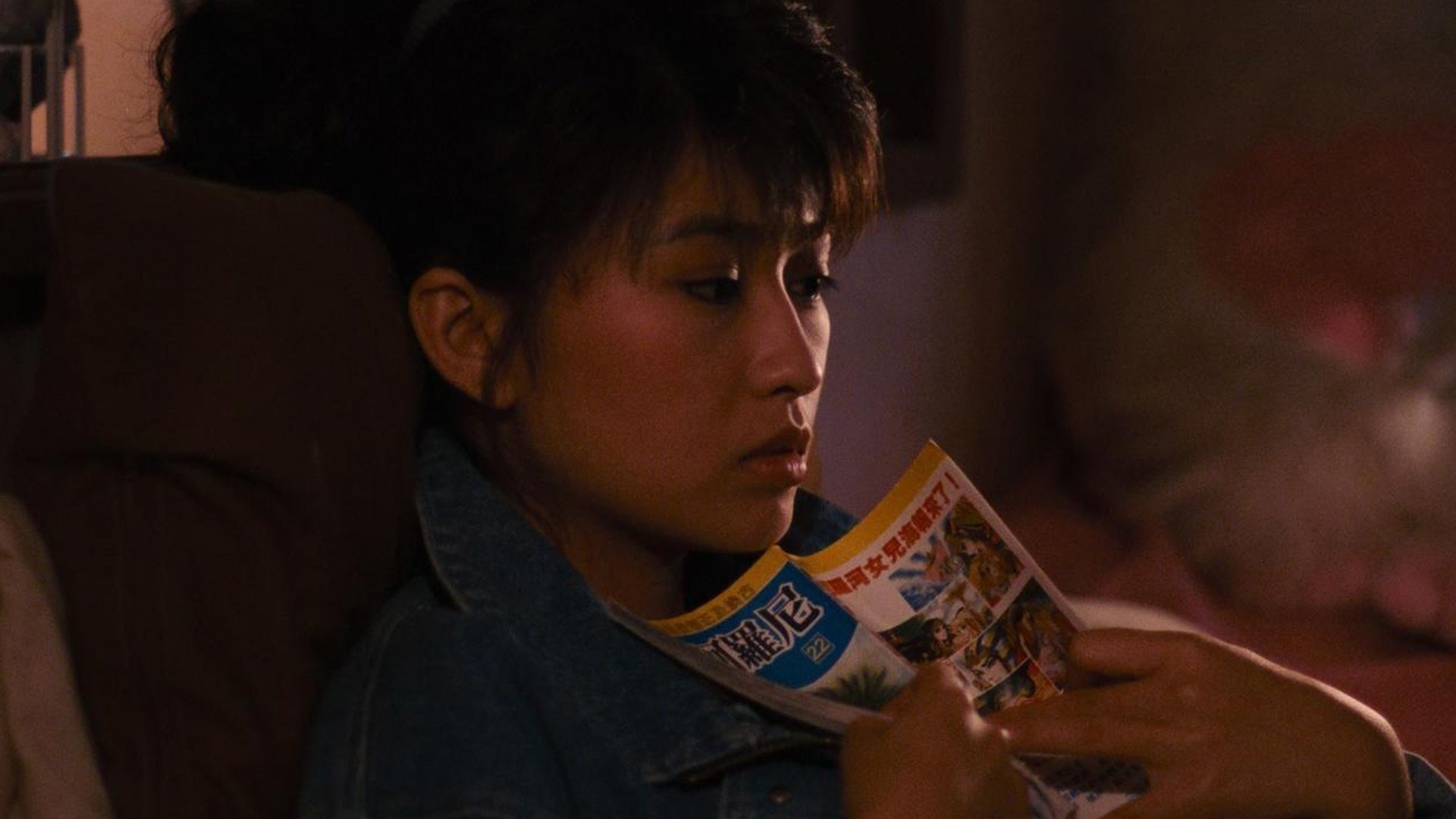
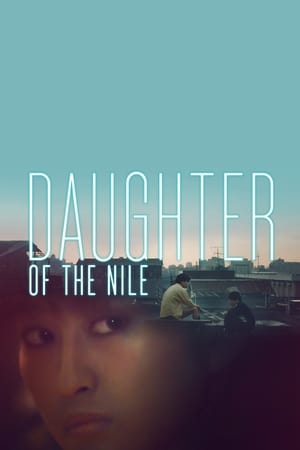
Daughter of the Nile
1987 • 1h 31min • ★ 7/10 • Taiwan
Directed by: Hou Hsiao-hsien
Cast: Yang Lin, Jack Kao, Li Tian-Lu, Tsui Fu-Sheng, Hsin Shu-Fen
Lin Hsiao-yang tries to keep her family together while working as a waitress at Kentucky Fried Chicken and going to night school. With no mother and her father currently working out of town, it is up to Lin Hsiao-yang to take care of her younger siblings, who are slipping into a life of crime.
“Daughter of the Nile” is a 1987 Taiwanese film directed by Hou Hsiao-hsien. The film tells the story of a young girl named Lin, who lives in Taipei with her family and works part-time at a KFC restaurant to help support them.
Lin finds solace in the fictional world of manga comics, where she dreams of a different life.
The film is a sensitive and realistic portrayal of teenage life, capturing the sense of dislocation and longing that many young people feel as they navigate the transition to adulthood.
The film is also notable for its portrayal of urban life in Taipei, which is presented as a complex and multi-layered environment full of contradictions.
Hou Hsiao-hsien uses a slow, deliberate pace and long takes to capture the rhythms of everyday life in Taipei, inviting the viewer to reflect on the characters’ experiences and emotions.
The film also features a beautiful musical score and stunning cinematography, adding to its atmospheric and contemplative feel.
Overall, “Daughter of the Nile” is a beautiful and poignant film that offers a sensitive and nuanced portrait of teenage life and the complexities of urban existence.
Its exploration of themes such as family, identity, and the pursuit of dreams make it a must-watch for anyone interested in films that offer a deep exploration of the human condition.
- The disk has English subtitles.
- English (Subtitle)
- English (Publication Language)
16. The Sandwich Man (1983)
“The Sandwich Man” is a 1983 Taiwanese film directed by Hou Hsiao-hsien, Tseng Chuang-hsiang, and Wan Jen.
The film is based on a collection of short stories by Huang Chun-ming, and consists of three loosely connected vignettes set in the same Taipei neighborhood.
The film is notable for its realistic and empathetic portrayal of everyday life in Taiwan, as well as for its exploration of the social and economic conditions of the time.
It captures the humor, pathos, and human drama of ordinary people, and offers a rich and nuanced portrait of Taiwanese society.
“The Sandwich Man” was highly acclaimed upon its release and is now considered a classic of Taiwanese cinema.
The film is notable for its poetic and highly artistic style, as well as for its profound and moving exploration of the human experience. It remains a powerful and affecting work of cinema, and a testament to the artistry and vision of its three directors.
- Amazon Prime Video (Video on Demand)
- Bor Jeng Chen, Yang Li-yin, Tseng Kuo-feng (Actors)
- Hou Hsiao-hsien (Director) - Wu Nien-jen (Writer) - Ji Ming (Producer)
- English (Playback Language)
- English (Subtitle)
3 Characteristics of Hou Hsiao-Hsien Films
Hou Hsiao-Hsien is a celebrated Taiwanese film director known for his unique cinematic style and themes that are deeply rooted in Taiwanese culture and history. Here are three key characteristics of his films:
Long takes and minimalistic camera movements: Hou Hsiao-Hsien is known for his use of long, static takes and minimalistic camera movements, which create a sense of contemplation and introspection.
This style is intended to draw the viewer’s attention to the details of the scene and to create a sense of realism and immersion.
Exploration of Taiwanese culture and history: Many of Hou Hsiao-Hsien’s films explore the social, cultural, and historical aspects of Taiwan. His films often focus on the tensions between tradition and modernity, and the changes that Taiwanese society has undergone over the years.
Use of non-linear narrative structures: Hou Hsiao-Hsien’s films often use non-linear narrative structures, with fragmented timelines and elliptical editing techniques.
This allows him to explore the themes of memory, nostalgia, and the passage of time, and to create a sense of complexity and depth in his storytelling.
3 Reasons Why You Should Watch Hou Hsiao-Hsien Films
If you’re interested in cinema that explores complex themes and tells thought-provoking stories, here are three reasons why you should watch films by Hou Hsiao-Hsien:
Unique cinematic style: Hou Hsiao-Hsien’s films are renowned for their unique cinematic style, characterized by long takes, minimalistic camera movements, and elliptical editing techniques. This style creates a sense of contemplation and immersion, drawing the viewer into the story and the world of the film.
Exploration of Taiwanese culture and history: Many of Hou Hsiao-Hsien’s films are deeply rooted in Taiwanese culture and history.
They explore the tensions between tradition and modernity and offer insights into the changes that Taiwanese society has undergone over the years. This makes his films not only beautiful to watch, but also informative and educational.
Masterful storytelling: Hou Hsiao-Hsien is a master storyteller who weaves complex narratives that are both thought-provoking and emotionally resonant.
His films often explore the themes of memory, nostalgia, and the passage of time, and his unique cinematic style adds a layer of complexity and depth to his storytelling. Watching his films is not just a cinematic experience, but also a profound journey into the human experience.
Best Hou Hsiao-Hsien Films – Wrapping Up
Hou Hsiao-Hsien is considered one of the most important directors in the history of Taiwanese cinema. His films are known for their slow, deliberate pacing, long takes, and contemplative style, and often explore themes such as family, identity, and the complexities of modern life. Here are some of his best films:
“A City of Sadness” (1989): This epic historical drama is considered one of Hou Hsiao-Hsien’s masterpieces. It tells the story of the Lin family in the aftermath of the 1947 February 28 Incident, which led to a period of martial law and political repression in Taiwan.
“The Puppetmaster” (1993): This film is a biopic of the Taiwanese puppeteer Li Tian-lu, who worked as a puppeteer for more than 70 years. The film explores Li’s life and the history of Taiwan during the Japanese colonial period.
“The Assassin” (2015): This martial arts film is set in ninth-century China and tells the story of a female assassin who is sent to kill a governor. The film is visually stunning and features exquisite cinematography and choreography.
These are just a few of the many excellent films by Hou Hsiao-Hsien. Each of his films offers a unique and deeply rewarding viewing experience, and his body of work is essential viewing for anyone interested in the art of cinema.


![Flowers of Shanghai (The Criterion Collection) [Blu-ray]](https://m.media-amazon.com/images/I/51EE8p1mHIL.jpg)

![Goodbye South, Goodbye [DVD]](https://m.media-amazon.com/images/I/51T15ZY0A6L.jpg)


![The Puppetmaster [DVD]](https://m.media-amazon.com/images/I/51CSHAYPVML.jpg)
![Flight of the Red Balloon [DVD] [2007]](https://m.media-amazon.com/images/I/51QVKH2LCeL.jpg)



![Good Men, Good Women [DVD]](https://m.media-amazon.com/images/I/51SXV7C05HL.jpg)



![Three Times [DVD]](https://m.media-amazon.com/images/I/517EV556AXL.jpg)
![Daughter Of The Nile [Masters of Cinema] Dual Format (Blu-ray & DVD) edition](https://m.media-amazon.com/images/I/51W35+hg8tL.jpg)

